The 2022 Cohort of University Impact Scholars
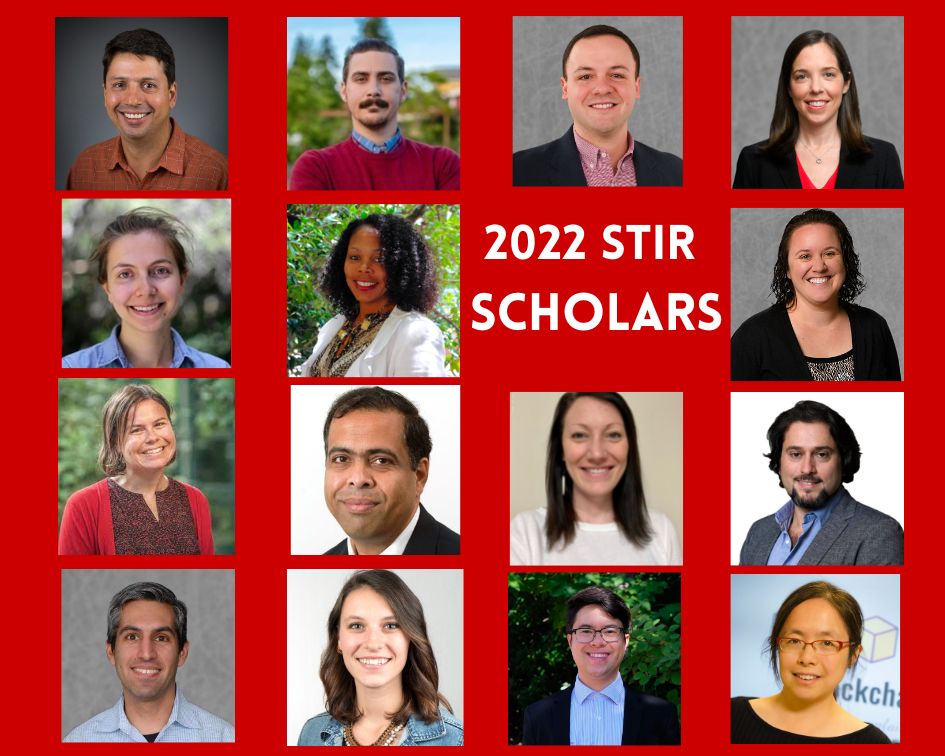
Scholars will use their research to contribute to society and develop their broader impact identities
In 2021, the NC State hosted its first series of Strengthening The Impact of Research (STIR) workshops and named the inaugural cohort of University Impact Scholars. After the successes of this initial group, fifteen members of the NC State faculty and staff community have been selected as Spring 2022 STIR Impact Scholars. The selection process for the 2nd cohort was even more challenging than the first, as the number of applicants tripled year-over-year. The selection of this new cohort speaks to to both their current and future contributions to the University’s broader impact mission of outreach and engagement.
This group of Impact Scholars will attend a series of workshops designed to strengthen their capacity to create innovative research impacts on society and write more competitive grant proposals. Impact Scholars will also design and implement a project of their own, and conduct a Research Impacts workshop within their respective departments.
In addition, thanks to support from the Office of Outreach and Engagement, Impact Scholars will receive $1,000 to support their upcoming projects.
The selected Impact Scholars represent a cross-section of the University; they come from 9 different Colleges or Schools; they are full and assistant professors, research associates, and postdoctoral scholars; and they come from a wide array of backgrounds.
The 2022 Spring cohort of Impact Scholars are:
Aram Amassian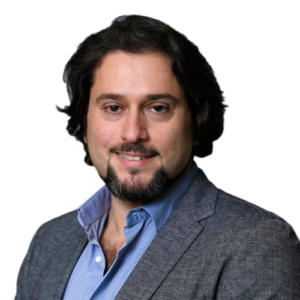 is a professor of Materials Science and Engineering and a founding member of the Carbon Electronics Cluster, where he heads the Ambient Manufacturing of Electronics (AME) laboratory. His research group is interested in enabling a new paradigm in additive manufacturing through research and development in ink-based organic and hybrid electronic materials. Research is performed in a state-of-the-art Ambient Manufacturing of Electronics (AME) laboratory, which carries out engineering efforts to integrate the ambient printing of electronic materials with classical additive manufacturing platforms to enable integrated manufacturing approaches. Dr. Amassian obtained his Ph.D. in Engineering Physics from Polytech Montreal in Canada.
is a professor of Materials Science and Engineering and a founding member of the Carbon Electronics Cluster, where he heads the Ambient Manufacturing of Electronics (AME) laboratory. His research group is interested in enabling a new paradigm in additive manufacturing through research and development in ink-based organic and hybrid electronic materials. Research is performed in a state-of-the-art Ambient Manufacturing of Electronics (AME) laboratory, which carries out engineering efforts to integrate the ambient printing of electronic materials with classical additive manufacturing platforms to enable integrated manufacturing approaches. Dr. Amassian obtained his Ph.D. in Engineering Physics from Polytech Montreal in Canada.
Hong Wan is an associate professor in the College of Engineering. Her research focuses on the areas of data, simulation, and blockchain. She concentrates on simulated data and internet data trying to find algorithms by first analyzing them. For simulation, she wants to focus on the sampling strategy and data analysis. She is the director of the ISE’s blockchain lab where the focus is on studying blockchain as a complex system using simulation, feature selection, game theory, optimization, and other operations research and statistical methods. Dr. Wan received her Ph.D. in industrial engineering and management sciences from Northwestern University.
is an associate professor in the College of Engineering. Her research focuses on the areas of data, simulation, and blockchain. She concentrates on simulated data and internet data trying to find algorithms by first analyzing them. For simulation, she wants to focus on the sampling strategy and data analysis. She is the director of the ISE’s blockchain lab where the focus is on studying blockchain as a complex system using simulation, feature selection, game theory, optimization, and other operations research and statistical methods. Dr. Wan received her Ph.D. in industrial engineering and management sciences from Northwestern University.
 Srinivasan Krishnamurthy is an associate professor of finance at the Poole College of Management. His primary research interests are corporate finance and investments/capital markets. Dr. Krishnamurthy’s research papers have been published in the leading finance and accounting journals and presented at major conferences and universities, both in the US and abroad. His research has been featured in major newspapers such as the Los Angeles Times. Along with Richard Warr, he has been appointed as Editor of the Financial Review. Dr. Krishanmurthy obtained his Ph.D. in Finance from Tulane University in New Orleans.
Srinivasan Krishnamurthy is an associate professor of finance at the Poole College of Management. His primary research interests are corporate finance and investments/capital markets. Dr. Krishnamurthy’s research papers have been published in the leading finance and accounting journals and presented at major conferences and universities, both in the US and abroad. His research has been featured in major newspapers such as the Los Angeles Times. Along with Richard Warr, he has been appointed as Editor of the Financial Review. Dr. Krishanmurthy obtained his Ph.D. in Finance from Tulane University in New Orleans.
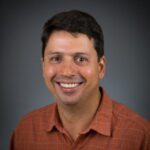 Marcelo Ardón Sayao an associate professor in the Department of Forestry and Environmental Resources. His work as a professor and researcher focuses on environmental sciences, ecosystems, wetlands and streams. Ardón is currently studying coastal wetlands in North Carolina and streams in Costa Rica. He and his team are examining the causes and consequences of these changes. He received his Ph.D. at the University of Georgia Ecology and performed his postdoctoral work at Duke University Biogeochemistry.
Marcelo Ardón Sayao an associate professor in the Department of Forestry and Environmental Resources. His work as a professor and researcher focuses on environmental sciences, ecosystems, wetlands and streams. Ardón is currently studying coastal wetlands in North Carolina and streams in Costa Rica. He and his team are examining the causes and consequences of these changes. He received his Ph.D. at the University of Georgia Ecology and performed his postdoctoral work at Duke University Biogeochemistry.
 Hannah Levenson is a postdoctoral research scholar in the College of Agriculture and Life Sciences. She is a community ecologist broadly interested in investigating how humans impact the environment and exploring ways we can mitigate those impacts. She has a diverse research background including working on patch reefs in The Bahamas, to evaluating the effectiveness of planting pollinator habitat in agricultural areas as a conservation method to support native bee populations. Hannah earned her Ph.D. in Entomology, with a co-major in Biology from NC State.
Hannah Levenson is a postdoctoral research scholar in the College of Agriculture and Life Sciences. She is a community ecologist broadly interested in investigating how humans impact the environment and exploring ways we can mitigate those impacts. She has a diverse research background including working on patch reefs in The Bahamas, to evaluating the effectiveness of planting pollinator habitat in agricultural areas as a conservation method to support native bee populations. Hannah earned her Ph.D. in Entomology, with a co-major in Biology from NC State.
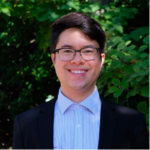 Alejandro Gutierrez-Li is an assistant professor in the Department of Agricultural and Resource Economics. His research interests lie in the areas of labor economics and applied microeconomics, with an emphasis on economics of immigration and entrepreneurship. Dr. Gutierrez-Li’s work focuses on the economics of labor, including labor supply and demand, wages, labor mobility, and immigration policy. He is in charge of the agricultural labor extension program at NC State aimed, among others, at developing best practices to train, manage, and retain agricultural workers to maintain the vitality and dynamism of the economy. Professor Gutierrez-Li holds a Ph.D. in Economics from Washington University in St. Louis.
Alejandro Gutierrez-Li is an assistant professor in the Department of Agricultural and Resource Economics. His research interests lie in the areas of labor economics and applied microeconomics, with an emphasis on economics of immigration and entrepreneurship. Dr. Gutierrez-Li’s work focuses on the economics of labor, including labor supply and demand, wages, labor mobility, and immigration policy. He is in charge of the agricultural labor extension program at NC State aimed, among others, at developing best practices to train, manage, and retain agricultural workers to maintain the vitality and dynamism of the economy. Professor Gutierrez-Li holds a Ph.D. in Economics from Washington University in St. Louis.
 Dr. Castro-Bolinaga is an assistant professor in the Department of Biological and Agricultural Engineering in the College of Agriculture and Life Sciences. His research aims to provide a better understanding of how the spatial and temporal scales associated with such processes control hydro-geo-environmental regimes in streams and rivers, and ultimately the adaptation capacity of these natural systems to external drivers (e.g., climate and hydraulic works). Fundamentally, our research philosophy is centered on examining basic governing mechanisms and developing innovative (computational, field, or analytical) solutions to high-impact, practical and theoretical engineering applications. He received his Ph.D. in Civil Engineering from Virginia Tech.
Dr. Castro-Bolinaga is an assistant professor in the Department of Biological and Agricultural Engineering in the College of Agriculture and Life Sciences. His research aims to provide a better understanding of how the spatial and temporal scales associated with such processes control hydro-geo-environmental regimes in streams and rivers, and ultimately the adaptation capacity of these natural systems to external drivers (e.g., climate and hydraulic works). Fundamentally, our research philosophy is centered on examining basic governing mechanisms and developing innovative (computational, field, or analytical) solutions to high-impact, practical and theoretical engineering applications. He received his Ph.D. in Civil Engineering from Virginia Tech.
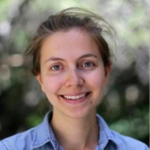 Kristen Paige is an assistant teaching professor of Musicology at Price Music Center. Her work explores how forms of scientific (especially environmental) knowledge reshaped musical practices and aural cultures in nineteenth- and twentieth-century Germany, with a special focus on global cultural and scientific exchanges. She maintains a strong interest in public musicology, particularly in how music and its institutions can offer collaborative responses to the climate crisis and its inequalities. She received her Ph.D. in Music History from the University of California, Berkeley.
Kristen Paige is an assistant teaching professor of Musicology at Price Music Center. Her work explores how forms of scientific (especially environmental) knowledge reshaped musical practices and aural cultures in nineteenth- and twentieth-century Germany, with a special focus on global cultural and scientific exchanges. She maintains a strong interest in public musicology, particularly in how music and its institutions can offer collaborative responses to the climate crisis and its inequalities. She received her Ph.D. in Music History from the University of California, Berkeley.
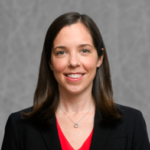 Jenn Ayscue is an assistant professor in Educational Evaluation and Policy Analysis and in Educational Leadership in the Department of Educational Leadership, Policy, and Human Development. Her research focuses on school integration in K-12 schools and federal education policy. Dr. Ayscue’s work on school integration examines trends, policies and practices that facilitate or constrain desegregation and integration efforts, and ways of remedying civil rights violations in education. Her research on federal policy examines equity and the Every Student Succeeds Act as well as the use of research in federal policy-making. She obtained a Ph.D. in Education from the University of California, Los Angeles.
Jenn Ayscue is an assistant professor in Educational Evaluation and Policy Analysis and in Educational Leadership in the Department of Educational Leadership, Policy, and Human Development. Her research focuses on school integration in K-12 schools and federal education policy. Dr. Ayscue’s work on school integration examines trends, policies and practices that facilitate or constrain desegregation and integration efforts, and ways of remedying civil rights violations in education. Her research on federal policy examines equity and the Every Student Succeeds Act as well as the use of research in federal policy-making. She obtained a Ph.D. in Education from the University of California, Los Angeles.
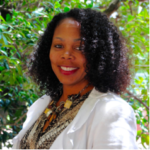 Lisa Bass is an associate professor in the College of Education. Her work focuses on education reform with an emphasis on equity and ethics, particularly the ethics of caring. Bass is also interested in Comparative and International issues and how they compare to U.S. norms. To this end, Bass has traveled to Mexico, Ghana, W. Africa, South Africa, Hong Kong, and Brazil. She earned her Ph.D. in Educational Leadership and Policy Studies and Comparative and International Education from The Pennsylvania State University
Lisa Bass is an associate professor in the College of Education. Her work focuses on education reform with an emphasis on equity and ethics, particularly the ethics of caring. Bass is also interested in Comparative and International issues and how they compare to U.S. norms. To this end, Bass has traveled to Mexico, Ghana, W. Africa, South Africa, Hong Kong, and Brazil. She earned her Ph.D. in Educational Leadership and Policy Studies and Comparative and International Education from The Pennsylvania State University
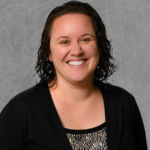 Jessica Gluck is an assistant professor at the Wilson College of Textiles. Her research interests include tissue Engineering, Stem Cell Biology, Medical Textiles, and Nanotechnology. She is interested in identifying how the environment surrounding stem cells helps them become specialized and support their function. Jessica is interested in tissue engineering, recreating tissues and figuring out how stem cells become a tissue of interest. She hopes this will advance treatments to repair and/or replace damaged or diseased tissue. She earned her Ph.D. in Molecular, Cellular & Integrative Physiology from UCLA.
Jessica Gluck is an assistant professor at the Wilson College of Textiles. Her research interests include tissue Engineering, Stem Cell Biology, Medical Textiles, and Nanotechnology. She is interested in identifying how the environment surrounding stem cells helps them become specialized and support their function. Jessica is interested in tissue engineering, recreating tissues and figuring out how stem cells become a tissue of interest. She hopes this will advance treatments to repair and/or replace damaged or diseased tissue. She earned her Ph.D. in Molecular, Cellular & Integrative Physiology from UCLA.
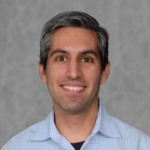 Carlos Goller is an associate teaching professor in the Department of Biological Sciences and teaches in the Biotechnology Program at North Carolina State University. His research interests include molecular microbiology, metagenomics, epidemiology, history of diseases, science education, and open educational practices. He is also interested in teaching with technology and the scholarship of teaching and learning. Dr. Goller wants to be a reflective teacher and curious scientist with the goal of learning with and from his students and staff at NC State and beyond. He received his Ph.D. in Microbiology and Molecular Genetics from Emory University in Atlanta.
Carlos Goller is an associate teaching professor in the Department of Biological Sciences and teaches in the Biotechnology Program at North Carolina State University. His research interests include molecular microbiology, metagenomics, epidemiology, history of diseases, science education, and open educational practices. He is also interested in teaching with technology and the scholarship of teaching and learning. Dr. Goller wants to be a reflective teacher and curious scientist with the goal of learning with and from his students and staff at NC State and beyond. He received his Ph.D. in Microbiology and Molecular Genetics from Emory University in Atlanta.
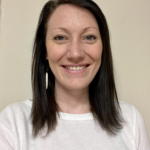 Kylie Rock is a postdoctoral researcher in the College of Sciences with Dr. Scott Belcher. She investigates the mechanisms by which environmental contaminants can impact sensitive windows of development and impact long-term health. Dr. Rock’s current projects focus on physiological outcomes in wildlife exposed to per- and polyfluoroalkylsubstances (PFAS). She received her Ph.D. in Environmental and Molecular Toxicology at NC State.
Kylie Rock is a postdoctoral researcher in the College of Sciences with Dr. Scott Belcher. She investigates the mechanisms by which environmental contaminants can impact sensitive windows of development and impact long-term health. Dr. Rock’s current projects focus on physiological outcomes in wildlife exposed to per- and polyfluoroalkylsubstances (PFAS). She received her Ph.D. in Environmental and Molecular Toxicology at NC State.
Lynsey K. Romo is an associate Professor in the Department of Communication at North Carolina State University. 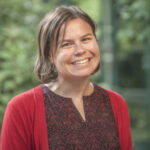 Her research examines how people talk about uncomfortable issues, specifically pertaining to health and finances. She has explored what motivates people to disclose taboo topics (e.g., salary) or stigmatized traits (e.g., abstaining from alcohol, being in recovery for substance misuse) and how individuals manage uncertainty surrounding their physical, social, and economic well-being. She also uncovers how couples can effectively motivate one another to engage in healthier eating and exercise behaviors, how people can communicatively manage interpersonal challenges to losing and maintaining weight, and how collegiate student athletes can negotiate stressors and ambiguity. Dr. Romo earned her Ph.D. in Communication Studies from The University of Texas at Austin.
Her research examines how people talk about uncomfortable issues, specifically pertaining to health and finances. She has explored what motivates people to disclose taboo topics (e.g., salary) or stigmatized traits (e.g., abstaining from alcohol, being in recovery for substance misuse) and how individuals manage uncertainty surrounding their physical, social, and economic well-being. She also uncovers how couples can effectively motivate one another to engage in healthier eating and exercise behaviors, how people can communicatively manage interpersonal challenges to losing and maintaining weight, and how collegiate student athletes can negotiate stressors and ambiguity. Dr. Romo earned her Ph.D. in Communication Studies from The University of Texas at Austin.
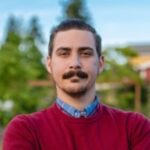 Sebastiano Busato is a postdoctoral researcher in the College of Engineering. His research interests include the use of data science and AI to provide quantitative insights and aid decision making for a variety of agricultural and biological scenarios. At NC State, Dr. Busato is currently involved in several projects including connecting participating in developing an integrated data analytics and decision platform for NC sweetpotato stakeholders, studying the effect of beneficial endophytes in plants, and mapping and modeling changes in the genetic variability of naturally-occurring fruit fly lines. Sebastiano, originally from Italy, obtained his Ph.D. in Animal Science, with minors in Molecular Biology and Biological Data Science, from Oregon State University in Corvallis, Oregon.
Sebastiano Busato is a postdoctoral researcher in the College of Engineering. His research interests include the use of data science and AI to provide quantitative insights and aid decision making for a variety of agricultural and biological scenarios. At NC State, Dr. Busato is currently involved in several projects including connecting participating in developing an integrated data analytics and decision platform for NC sweetpotato stakeholders, studying the effect of beneficial endophytes in plants, and mapping and modeling changes in the genetic variability of naturally-occurring fruit fly lines. Sebastiano, originally from Italy, obtained his Ph.D. in Animal Science, with minors in Molecular Biology and Biological Data Science, from Oregon State University in Corvallis, Oregon.
 Jackie Relyea is an assistant professor in the College of Education. Her interests include literacy development and instruction of K-6 students from culturally and linguistically diverse backgrounds. Her research focus lies in a literacy intervention model that emphasizes the integration of literacy instruction in content areas to develop students’ academic vocabulary, reading comprehension, domain-specific content knowledge, and higher-order thinking skills, particularly for English learners and emergent bilinguals. Dr. Relyea earned her Ph.D. in Literacy Education from the University of North Carolina at Chapel Hill.
Jackie Relyea is an assistant professor in the College of Education. Her interests include literacy development and instruction of K-6 students from culturally and linguistically diverse backgrounds. Her research focus lies in a literacy intervention model that emphasizes the integration of literacy instruction in content areas to develop students’ academic vocabulary, reading comprehension, domain-specific content knowledge, and higher-order thinking skills, particularly for English learners and emergent bilinguals. Dr. Relyea earned her Ph.D. in Literacy Education from the University of North Carolina at Chapel Hill.
 Erin Baker is an associate professor in the College of Sciences. Her research has utilized techniques such as liquid chromatography, ion mobility spectrometry, and mass spectrometry to evaluate molecules present and changing in biological and environmental systems. Her research projects include the development of high-throughput analyses to study numerous samples in a short time period as well as informatics studies to evaluate the complex multi-omic data acquired. Dr. Baker earned her Ph.D. in Chemistry (specializing in Physical Chemistry) from the University of California, Santa Barbara.
Erin Baker is an associate professor in the College of Sciences. Her research has utilized techniques such as liquid chromatography, ion mobility spectrometry, and mass spectrometry to evaluate molecules present and changing in biological and environmental systems. Her research projects include the development of high-throughput analyses to study numerous samples in a short time period as well as informatics studies to evaluate the complex multi-omic data acquired. Dr. Baker earned her Ph.D. in Chemistry (specializing in Physical Chemistry) from the University of California, Santa Barbara.
 Ashly Cabas Mijares is an assistant professor in the College of Engineering. Her research interests include the assessment of seismic hazards, performance-based design in geotechnical engineering, the prediction of the response of soils and foundation systems to seismic loading and dynamic soil-foundation-structure interaction. Her research focuses particularly on the advancement of the current understanding of the impact that local soil conditions have on ground motions, improving the assessment of site-specific seismic hazards, and elucidating the correlation between ground motion parameters and structural response and damage. Dr. Cabas earned her Ph.D. in Civil Engineering from Virginia Tech.
Ashly Cabas Mijares is an assistant professor in the College of Engineering. Her research interests include the assessment of seismic hazards, performance-based design in geotechnical engineering, the prediction of the response of soils and foundation systems to seismic loading and dynamic soil-foundation-structure interaction. Her research focuses particularly on the advancement of the current understanding of the impact that local soil conditions have on ground motions, improving the assessment of site-specific seismic hazards, and elucidating the correlation between ground motion parameters and structural response and damage. Dr. Cabas earned her Ph.D. in Civil Engineering from Virginia Tech.
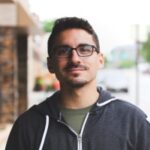 Jesse Contreras is a postodoctoral researcher in the College of Natural Resources working with Dr. Ayse Ercumen in the Department of Forestry and Environmental Resources. His research includes conducting and reporting on epidemiological analyses on data collected as part of the WASH-Benefits Bangladesh trial of a sanitation intervention. His work is attempting to understand how latrine access, community coverage, and exposure to animals interact to affect children’s health and environmental contamination. Dr. Contreras earned his Ph.D. in Epidemiology from the University of Michigan.
Jesse Contreras is a postodoctoral researcher in the College of Natural Resources working with Dr. Ayse Ercumen in the Department of Forestry and Environmental Resources. His research includes conducting and reporting on epidemiological analyses on data collected as part of the WASH-Benefits Bangladesh trial of a sanitation intervention. His work is attempting to understand how latrine access, community coverage, and exposure to animals interact to affect children’s health and environmental contamination. Dr. Contreras earned his Ph.D. in Epidemiology from the University of Michigan.
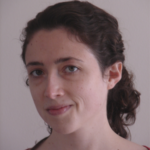 Robin Dodsworth is a professor in the College of Humanities and Social Sciences. Her research interests include a project studying vowel change using a corpus of conversational data from over 300 native residents of Raleigh, NC. Her research examines how the Southern Vowel Shift is in decline in Raleigh as the result of large-scale migration from outside the South. One of her project’s main goals is to use contemporary social network methods to look at the social distribution of the linguistic variables. Dr. Dodsworth earned her Ph.D. in Linguistics from Ohio State University.
Robin Dodsworth is a professor in the College of Humanities and Social Sciences. Her research interests include a project studying vowel change using a corpus of conversational data from over 300 native residents of Raleigh, NC. Her research examines how the Southern Vowel Shift is in decline in Raleigh as the result of large-scale migration from outside the South. One of her project’s main goals is to use contemporary social network methods to look at the social distribution of the linguistic variables. Dr. Dodsworth earned her Ph.D. in Linguistics from Ohio State University.
 Callie Womble Edwards is a research associate at the Friday Institute, where she evaluates educational initiatives using quantitative and qualitative methodologies. Her research examines how individual schools, school districts, and higher education institutions can improve their spaces to better support historically underrepresented student and staff populations such as women, racial and ethnic minorities, and low-income individuals. Another major aspect of Dr. Edwards’ work is developing and maintaining effective research-practice partnerships (RPPs) with schools and districts. Dr. Edwards earned her Ph.D. in Educational Research and Policy Analysis from North Carolina State University.
Callie Womble Edwards is a research associate at the Friday Institute, where she evaluates educational initiatives using quantitative and qualitative methodologies. Her research examines how individual schools, school districts, and higher education institutions can improve their spaces to better support historically underrepresented student and staff populations such as women, racial and ethnic minorities, and low-income individuals. Another major aspect of Dr. Edwards’ work is developing and maintaining effective research-practice partnerships (RPPs) with schools and districts. Dr. Edwards earned her Ph.D. in Educational Research and Policy Analysis from North Carolina State University.
 Xiaomeng Fang is an assistant professor in the Wilson College of Textiles. Her research focuses on the development of advanced flexible/fiber-based electronics, such as fiber actuators, fiber sensors and generators as well as functional/smart textiles assembled by fiber electronics. Additionally, she also investigated textile protection/comfort and textile reinforced composites. Her overarching research interest is the application of fibers and textiles to solve many of the life quality issues including health and well-being. Dr. Fang earned her Ph.D. in Fiber and Polymer Science from North Carolina State University.
Xiaomeng Fang is an assistant professor in the Wilson College of Textiles. Her research focuses on the development of advanced flexible/fiber-based electronics, such as fiber actuators, fiber sensors and generators as well as functional/smart textiles assembled by fiber electronics. Additionally, she also investigated textile protection/comfort and textile reinforced composites. Her overarching research interest is the application of fibers and textiles to solve many of the life quality issues including health and well-being. Dr. Fang earned her Ph.D. in Fiber and Polymer Science from North Carolina State University.
 Erin Frey is a Research Assistant Professor in the College of Veterinary Medicine. Her research has focused on the interplay of human, animal and environmental health. Specifically, it involves understanding how antibiotics are used in dogs and cats and finding effective ways to promote good stewardship of antibiotics by animal caretakers and animal medical professionals. Currently, her projects include identifying potential collaborative community partners to operationalize antimicrobial stewardship principles for the benefit of society. Dr. Frey earned her doctorate in Veterinary Medicine from North Carolina State University.
Erin Frey is a Research Assistant Professor in the College of Veterinary Medicine. Her research has focused on the interplay of human, animal and environmental health. Specifically, it involves understanding how antibiotics are used in dogs and cats and finding effective ways to promote good stewardship of antibiotics by animal caretakers and animal medical professionals. Currently, her projects include identifying potential collaborative community partners to operationalize antimicrobial stewardship principles for the benefit of society. Dr. Frey earned her doctorate in Veterinary Medicine from North Carolina State University.
 Maru Gonzalez is an assistant Professor in the College of Agricultural and Life Sciences. Her research has focused on school counselor advocacy with LGBTQ+ students. Currently, Dr. Gonzalez is Program Director for #PassTheMicYouth, a youth-led podcast and blog which aims to amplify youth voices, shine a spotlight on youth activism, and provide educators with resources for cultivating critical consciousness. Her current research seeks to pilot a critical positive youth development (CPYD) curriculum she designed to kids across NC. She earned her Ed.D in Student Development from the University of Massachusetts Amherst.
Maru Gonzalez is an assistant Professor in the College of Agricultural and Life Sciences. Her research has focused on school counselor advocacy with LGBTQ+ students. Currently, Dr. Gonzalez is Program Director for #PassTheMicYouth, a youth-led podcast and blog which aims to amplify youth voices, shine a spotlight on youth activism, and provide educators with resources for cultivating critical consciousness. Her current research seeks to pilot a critical positive youth development (CPYD) curriculum she designed to kids across NC. She earned her Ed.D in Student Development from the University of Massachusetts Amherst.
 Roger Narayan is a professor in the College of Engineering. His research involves a variety of laser direct writing methods, including matrix-assisted pulsed-laser evaporation direct write and two-photon polymerization, for additive manufacturing of biomaterials and medical devices. Recently, he has focused on efforts to recruit participation by students from underrepresented groups in the biomedical engineering department both at the undergraduate level and graduate level. Dr. Narayan earned his Ph.D. in Materials Science and Engineering from North Carolina State University and his M.D. from the Wake Forest University School of Medicine.
Roger Narayan is a professor in the College of Engineering. His research involves a variety of laser direct writing methods, including matrix-assisted pulsed-laser evaporation direct write and two-photon polymerization, for additive manufacturing of biomaterials and medical devices. Recently, he has focused on efforts to recruit participation by students from underrepresented groups in the biomedical engineering department both at the undergraduate level and graduate level. Dr. Narayan earned his Ph.D. in Materials Science and Engineering from North Carolina State University and his M.D. from the Wake Forest University School of Medicine.
 Yuhan (Douglas) Rao is a postdoctoral research scholar at the North Carolina Institute for Climate Studies. His current research focuses on generating a blended near-surface air temperature dataset by integrating in situ measurements and satellite observations via innovative statistical models. His broader research interests focus on advanced statistical models, satellite data development/validation, land–atmosphere interaction, and applied research for climate and environment monitoring. Dr. Rao earned his Ph.D. in Geographical Sciences from University of Maryland, College Park.
Yuhan (Douglas) Rao is a postdoctoral research scholar at the North Carolina Institute for Climate Studies. His current research focuses on generating a blended near-surface air temperature dataset by integrating in situ measurements and satellite observations via innovative statistical models. His broader research interests focus on advanced statistical models, satellite data development/validation, land–atmosphere interaction, and applied research for climate and environment monitoring. Dr. Rao earned his Ph.D. in Geographical Sciences from University of Maryland, College Park.
 Traci Rider is an assistant professor in the College of Design. Her research projects include methods for introducing building science and health topics to middle school students in North Carolina through STEM exercises, as well as supporting the development of interdisciplinary focus areas for the NC State in the areas of Sustainable Cities. Her research interests include design culture and the influence of sustainability; human-environment relations, including allowances and affordances; impacts of the built environment on health and well-being; designed spaces for environmental education; and design for special populations including children and the elderly. Dr. Rider earned her Ph.D. in Design from North Carolina State University.
Traci Rider is an assistant professor in the College of Design. Her research projects include methods for introducing building science and health topics to middle school students in North Carolina through STEM exercises, as well as supporting the development of interdisciplinary focus areas for the NC State in the areas of Sustainable Cities. Her research interests include design culture and the influence of sustainability; human-environment relations, including allowances and affordances; impacts of the built environment on health and well-being; designed spaces for environmental education; and design for special populations including children and the elderly. Dr. Rider earned her Ph.D. in Design from North Carolina State University.